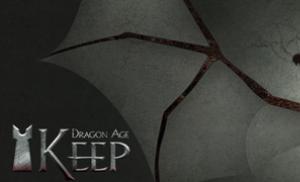Formation of adjectives in French. Plural of adjectives in French
In French distinguish between masculine and feminine nouns.
1. The most common way to form feminine nouns is to add the ending -e to the noun male, For example:
- un Anglais - Englishman, une Anglaise - Englishwoman;
- un voisin - neighbor, une voisine - neighbor;
- un serveur - waiter, une serveuse - waitress.
2. Nouns ending in mute - e, do not change in the feminine, for example:
- un violoniste - violinist, une violoniste - violinist;
- un complice - accomplice, une complice - accomplice;
- un réaliste - realist, une réaliste - realist.
3. Nouns ending in -er in the masculine gender end in the feminine gender -ère, for example:
- le banquier - banker (bank employee), la banquière - bank employee;
- le cuisinier - cook, la cuisinière - cook;
- le couturier - tailor, la couturière - seamstress.
4. If a masculine noun ends in a nasal vowel, then when forming a feminine gender, a dumb -e is added, and the ending loses its nasal sound.
- un copain - friend, une copine - friend;
- un amant - lover, une amante - mistress.
5. When a feminine noun is formed from a masculine noun that ends in -en, -ien, -on, as well as in the word paysan, a dumb -e is added. In this case, -n is doubled, for example:
- le végétarien - vegetarian, la végétarienne - vegetarian;
- le chien - dog, la chienne - dog;
- le paysan - peasant, la paysanne - peasant woman.
6. If a feminine noun is formed from a masculine noun that ends in -f, then the dumb -e is added, and the ending changes -v. The vowel before the ending becomes long, for example:
- le actif - activist, la active - activist.
gender of adjectives
In French, adjectives can be masculine or feminine.
1. One way to form a feminine adjective is to add -e to a masculine adjective, for example:
- fort - strong, forte - strong;
- principal - main, principale - main;
- capital - main, capitale - main.
2. If a feminine adjective is formed from a masculine adjective that ends in -c (pronounced), then in the feminine adjective the ending will change to -que, for example:
- public - public, publique - public.
But if the ending -c is mute, then the feminine adjective gets the ending -che, for example:
- blanc - white, blanche - white.
3. If a masculine adjective ends in -f, then when a feminine adjective is formed, it ends in -ve:
- neuf - new, neuve - new.
4. If the masculine adjective ends in -g, then in the feminine it goes into the ending -gue:
- long - long, longue - long.
5. Adjectives in the masculine ending -al, when formed in the feminine gender, receive the ending -ale, for example:
- amical - friendly, amicale - friendly.
6. The ending of masculine adjectives -el forms -elle when changing to feminine. Also, -ul becomes -ulle, but the pronunciation remains the same:
- cruel - cruel, cruelle - cruel.
7. If the adjective ends in -eil, then when it is feminine, it gets the ending -eille, but the pronunciation does not change, for example:
- pareil - similar, pareille - similar.
8. If in the masculine the adjective has the ending -il, then in the feminine it takes on the ending -ile, for example:
- civil - civil, civile - civil.
9. The ending -n in the formation of the feminine becomes -ne, but adjectives ending in -on change the ending to -onne, for example:
- fin - thin, fine - thin.
The exception is: paysan - peasant, paysanne - peasant.
10. The ending -ien becomes feminine in the ending -ienne:
- Italien - Italian, Italienne - Italian.
11. If the masculine adjective has a mute ending -er, then in the feminine add -e and the sign "`":
- premier - first, première - first.
12. The ending -eur changes to -euse, for example:
- rieur - funny, rieuse - funny.
13. The ending -teur in the masculine gender changes to -touse in the feminine, if it is formed from a verb that has -t in the infinitive before the ending, for example:
- flotteur - floating, flottouse - floating.
14. The remaining adjectives with the ending -teur in the masculine gender, which are not formed from verbs with -t in the root, receive the ending - trice:
- protecteur - protective, protectrice - protective.
13. The ending -s changes to the ending -se, for example: gris - gray, grise - gray. Exceptions to this rule are:
- frais - fresh, fraiche - fresh;
- tiers - third, tierce - third.
15. When forming the feminine, some adjectives double -s, such as:
- gros - thick, grosse - thick;
- gras - fat, grasse - fat;
- las - tired, lasse - tired;
- métis - mixed, métisse - mixed;
- exprès - decisive, expresse - decisive;
- épais - thick, épaisse - thick;
- profès - vowed, professe - vowed.
- bas - low, basse - low.
16. Masculine adjectives ending in -et become feminine in the ending -ette:
- coquet - charming, coquette - charming.
There are ten adjectives that end in -et but end in -ète in the feminine, as follows:
- complet - filled, complète - filled;
- concret - specific, concrète - specific;
- secret - secret, secrete - secret;
- incomplèt - incomplete, incomplète - incomplete;
- indiscret - immodest, indiscrète - immodest;
- inquiet - restless, inquiète - restless;
- désuet - outdated, désuète - outdated;
- discret - modest, discrète - modest;
- quiet - calm, quiète calm;
- replet - portly, replète - portly.
We are glad to welcome all lovers of the French language on our site. Today we will talk about one of the main parts of speech of the language - this is the adjective. Adjectives in French, as well as in Russian, are an important and integral part of the sentence, which allows you to define the subject, its properties and characteristics.
In French, unlike Russian, there are only two genders - masculine and feminine (in Russian there are also neuter gender). The French adjective changes in gender, number, and degree of comparison, which are consistent with the gender and number of the noun to which it refers.
Let's quickly get acquainted with the adjective in French!
Briefly about the gender and number of adjectives
On our site, we have already discussed such a grammatical phenomenon as the gender and number of French adjectives. But, if you want to refresh your memory in this area, then let's quickly go over this topic with you.
How are feminine adjectives formed? Usually, a masculine adjective ends in -e to form a feminine gender. For example:
- Grand - grande - big - big
- Petit - petite - small - small
- Rusé - rusée - cunning - cunning
For example: une petite fille (little girl) – un petit garçon (little boy)
If the adjective ends in -s, the feminine ending changes to -che:
- Blanc – blanche – white – white
- Franc - franche - open - open
- Sec - sèche - dry - dry
For example: Un homme franc (a frank man) - une femme franche (a frank woman)
Adjective agreement in gender and numberThe feminine ending -eur changes to -euse:
- Menteur - menteuse - deceitful - deceitful
- Moqueur - moqueuse - mocking - mocking
For example: un garçon menteur (lying boy) - une fillette menteuse (lying girl)
The feminine ending -teur changes to -trice:
- Observateur - observatrice - observant - observant
- Interrogateur - interrogatrice - interrogator - interrogator
For example: un professeur observateur (observant professor) - une élève observatrice (observant chenitsa)
The ending -eau turns into -elle:
- nouveau - nouvelle - new - new
- Jemeau - jumelle - similar - similar (twin - twin)
- Beau - belle - beautiful - beautiful
For example: un nouveau ami (new friend) - une nouvelle amie (new girlfriend)
The masculine ending -ou becomes feminine -olle:
- Fou - folle - crazy - crazy
- Mou - molle - soft - soft
The voiceless ending -s in the masculine becomes voiced in the feminine:
- Français – française – French – French
The ending -f in the feminine gender changes to -ve:
- Neuf - neuve - new - new
The ending -eux changes to -euse:
- Heureux - heureuse - happy - happy
Some adjectives in French do not fit any rule, so you need to remember them:
- Bas– basse– low – low
- Blanc– blanche– white – white
- Frais - fraiche - fresh - fresh
- Gros– grosse– thick – thick
- Long - longue - long - long
- Pais - paisse - thick - thick
- Doux - douce - sweet - sweet
We will not give in detail all the rules for the formation of feminine French adjectives. You can read more about this in our dedicated article. In the meantime, let's briefly go over the formation of the plural.
French plural adjective
The adjective in French, as in Russian, changes not only in gender, but also in number. The general rule for plural formation is to add the ending -s to the adjective in the singular:
- Différent - differents - different - different
- Petit - petits - small - small
- Pointu - pointus - sharp - sharp
For example: un nez pointu (sharp nose) - une tour pointue (sharp tower)
The same ending for feminine adjectives:
- Différente - differentes - different - different
- Petite - petites - small - small
- Pointue - pointues - sharp - sharp
Adjectives ending in -al in the plural get -aux:
- Vertical - verticaux - vertical - vertical
The endings -s or -x in the plural remain unchanged:
- Gros - gros - thick - thick
- Heureux - heureux - happy - happy
Now let's talk about the place of adjectives next to nouns.
 Everyone has such a friend: examples of adjectives
Everyone has such a friend: examples of adjectives Location of the adjective
In Russian, we are used to the fact that the adjective is in front of the word that it defines: a cozy house, a beautiful girl, a tall man, etc. In French, the situation is different: most adjectives appear after the word they define: un homme heureux, une chambre confortable, un ami hospitalier.
The following adjectives are placed before the noun:
- Autre - different
- Beau (belle) - beautiful
- Bon (bonne) - good, kind
- Grand (grande) - large
- Gros (grosse) - thick
- Haut (haute) - high
- Joli (jolie) - cute
- Long (longue) - long
- Mauvais (mauvaise) - bad, evil
- Nouveau (nouvelle) - new
- Petit (petite) - small
- Vilain (vilaine) - ugly
- Jeune - young
- Vieux (vieille) - old
BUT: if an adverb is used with these adjectives, then both words are after the noun: un garçon très haut - a very tall boy. And if such adjectives have an object, then they are also placed after the noun: le vin bon à boire - wine that is good to drink.
Some French adjectives can be placed both before and after the noun. They do not change their meaning. These are evaluative adjectives that, without changing the meaning, can be placed both before and after the noun. But, if they stand before a noun, they acquire a subjective meaning. These are the adjectives:
- Délicieux - delicious tasty
- Magnifique - beautiful
- Splendide - magnificent
- superbe - amazing
- Horrible - terrible
- Extraordinaire - extraordinary
- Etonnant - amazing
- Formidable - incomparable
- Parfait - excellent
- Râvissant - beautiful
- Passionnant - exciting
- Merveilleux - wonderful
- Incroyable - Incredible
- Admirable - wonderful
- Epouvantable - terrifying
- excellent - excellent
- Remarquable - wonderful
A number of some adjectives change their meaning depending on the position. That is, being before a noun, they have one meaning, being after a noun, they acquire a different meaning. Pay attention to the scheme of adjectives and their translation depending on their position: adjective - meaning after a noun - meaning before a noun.
- Amer - bitter (tastes) - bitter (portable)
- Ancien - ancient - former
- Antique - antique - old
- Bas - low - low (portable)
- Brave - brave - decent, glorious
- Certain - certain - some
- Chaud - warm - warm (portable)
- Cher - expensive - expensive (in circulation)
- doux - sweet - delicate
- Dur - hard - heavy
- Fameux - famous - excellent
- Faux - false - false
- Fier - proud - rare, notorious
- Fin - thin - skillful
- Fort - strong - intense
- Fou - crazy - crazy
- Franc - direct - explicit
- Froid - cold - cold (portable)
- Furieux - angry - very strong
- Gris - gray - sad
- Léger - light - frivolous
- Maigre - thin - miserable, meager
- Mechant - evil - insignificant
- Mince - thin - insignificant
- Mortel - mortal - deadly
- Mou - soft - soft (portable)
- Noble - noble - noble, exalted
- Pâle - pale - miserable
- pauvre - poor - unfortunate
- Pieux - pious - good
- Plaisant - pleasant - cheerful
- Propre - pure - own
- Rare - rare - rare (portable)
- Riche - rich - expensive (portable)
- Royal - royal - royal (portable)
- Rude - hard, harsh - big, strong
- Sacré - sacred - accursed (BUT: in the titles le Sacré Collège, Sacré-Cœur it means "holy, religious")
- Saint - sacred - holy
- Sale - dirty - vile, vile
- Seul - lonely - the only one
- Simple - simple - ordinary
- Triste - sad - bad
- Unique - the only one - the only one of what was
- Vague - indefinite - insignificant
- Vrai - truthful - true, real
- Vert - green, unripe - peppy
- Vif - live - strong (portable)
But what to do if there are several adjectives defining the word? In this case, you need to start with more general characteristics, moving to the specific (that is, from the general to the particular):
- Une voiture japonaise noire - black Japanese car
- Un vin blanc français - French white wine
Use as many adjectives as possible, look for synonyms for them, this will make your speech much more interesting and richer!
French distinguishes between masculine and feminine adjectives. There are such ways of forming the feminine gender:
1)
Added - e to
masculine gender which is in the singular. For example: petit - petite, gris - grise.
2)
If the adjective is masculine
ends:
C (which is pronounced in speech) feminine ending
will be que. For example: public - publique.
C (which
not pronounced in speech) in the feminine will have the ending che. For example: blanc-blanche.
3) If the adjective is masculine
genus ends in -f then in when
in feminine education, it changes to -
ve. For example: neuf - neuve.
4) The ending g in the masculine turns into gue in the feminine. For example: long - longue.
5) The ending al changes to ale
and at the same time l is not
doubles. For example: amical-amicale.
6) The ending of the masculine gender el in the feminine forms elle, and also ul goes into ulle and when
this does not change the pronunciation. For example: cruel - cruelle, nul - nulle.
7) If the word ends in eil, then when it becomes feminine, it acquires the ending eille, and the pronunciation remains the same. For example: pareil-pareille.
8) In the masculine il, then in the feminine ile. In this case, the doubling of l does not occur. For example: civil - civile.
9) The ending n becomes feminine ne, and words that end in on get the ending onne.
For example: fin
- fine, bon - bonne. Available
and an exception: paysan - paysanne.
10) The ending ien is converted to ienne. For example: Italian -Italienne.
11) When the adjective is standing
in the masculine gender it has an unpronounceable ending er then for the formation of the feminine gender
add e and the "`" sign. For example: premier-
premiere.
12) The ending eur changes to euse, and teur to touse (if
is an adjective derived from a verb that has a t before the ending in the infinitive). For example: rieur-rieuse, flotter (verb) - flotteur(
masculine adjective) - flottouse (feminine). All
other adjectives formed not from a verb with t in the root are formed in the following way: teur - trice. For example: protecteur
- protectrice.
13) Some adjectives
of Latin origin having a masculine ending eur forms eure. For example: anténeur - anténeure.
14) s changes to se gris-grise. There are exceptions: frais -
fraiche, tiers - tierce.
15) Several adjectives double s: gros - grosse, gras -
grasse, las - lasse, métis - métisse, expres
-expresse, épais - épaisse, profes - professe, bas - basse.
16) Masculine et in feminine ette. For example:
coquet - coquette. There are ten adjectives that
end in et - ète: complete-
complète, concret - concrète, secret - secret, incomplete - incomplète, indiseret - indiserète, inquiet - inquiète, désuet -
desuète, discret - discrete,
quiet-
quiète, replete - replete.
17) In the masculine ot in the feminine ote. For example: idiot-idiote. There are words in which t doubles: sot -sotte, boulot -doulotte, vieillot - vieillotte.
18) The ending of the masculine gender eux in the feminine euse and oux - ouse. For example: jaloux - jalouse.
Exception words: beau
- belle, jumeau -jumelle, mou - molle, vieux - vieille, nouveau - nouvelle.
1. Plural Adjectives in French are most often formed in the same way as for nouns, that is, by adding the ending -s.
For example:
un vase rouge - des vases rouges (red vase - red vases);
une belle table - de belles tables (beautiful table - beautiful tables);
une petite chambre - de petites chambres (small room - small rooms);
une ligne droite - des lignes droites (straight line - straight lines);
un mur bleu - des murs bleus (blue (blue) wall - blue walls).
The ending -s is not pronounced!
But in some cases, the plural of adjectives in French is formed according to other rules. They depend on which letter or combination of letters ends the adjective in the singular.
2. Adjectives that end in -s or -x in the singular do not change in the plural.
For example:
un fils paresseux - des fils paresseux (lazy son - lazy sons);
un détail curieux - des détails curieux (curious detail - curious details);
un voyage dangereux - des voyages dangereux (dangerous trip - dangerous trips);
un gros morceau - de gros morceaux (large piece - large pieces);
un vieux cahier - de vieux cahiers (old notebook - old notebooks).
But the adjective vieux in the masculine singular has another form - vieil (used before a noun that begins with a vowel or an unpronounceable “h” (“h” muet)). In this case, the plural will be formed from vieux, for example: un vieil oncle - de vieux oncles (old uncle - old uncles).
3. Adjectives ending in the singular with -eau acquire the ending -eaux in the plural.
For example:
un beau jardin - de beaux jardins (beautiful garden - beautiful gardens);
un nouveau tableau - de nouveaux tableaux (new painting - new paintings).
But the above adjectives, which have a different form in the singular in the masculine gender: bel, nouvel (used before a noun that begins with a vowel or an unpronounceable “h” (“h” muet)), form the plural from beau, nouveau.
For example:
un bel ami - de beaux amis (beautiful friend - beautiful friends);
un nouvel appareil - de nouveaux appareils (new apparatus - new apparatuses).
It should be noted that in the feminine, the plural ending -s is added to the adjectives belle (beautiful) and nouvelle (new): de belles places (beautiful places, squares), de nouvelles tasses (new cups).
4. Most adjectives that end in -al in the singular end in -aux in the plural.
For example:
un problème médical - des problèmes médicaux (medical problem - medical problems);
un pays tropical - des pays tropicaux (tropical country - tropical countries);
un festival international - des festivals internationaux (international festival - international festivals);
un principe fondamental - des principes fondamentaux (fundamental principle - fundamental principles).
But not all adjectives ending in -al in the singular end in -aux in the plural. For example, adjectives fatal (fatal, inevitable), banal (banal), glacial (icy), natal (native), final (final, final, final) in the plural have the ending -s.
For example:
un pays natal - des pays natals (home country - home countries);
un but final - des buts finals (final goal - final goals);
un compliment banal - des compliments banals (banal compliment - banal compliments);
un vent glacial - des vents glacials (icy wind - icy winds).
The feminine gender of adjectives in French has its own characteristics that you need to know in order to speak French correctly. Unfortunately, many French methods do not pay due attention to this topic, and in the future, students, when learning French, may have many questions. For example, why do we say "heureux - heureuse" but "protecteur - protectrice"? Or why do we write: cadet - cadette, but complet - complète? Is it really necessary to just memorize all the forms and learn them by heart? Of course not! There are rules that will help you understand this topic. Let's get started!
General rule for the formation of feminine adjectives in French says that you need to add to the masculine form – e:vert– verte.
NB: Of course, this rule does not apply to all adjectives. So, you need to remember that if the adjective in the masculine gender ends in -e, then nothing needs to be added in the feminine gender. That is, the adjective will have the same form both in the masculine and in the feminine: jeune - jeune.
Many French adjectives have their own feminine characteristics, but all these features have their own logic. You need to look at the suffix at the end of the adjective. Depending on which French suffix is at the end of the adjective, you will need to choose the appropriate feminine suffix. To make it more clear, let's illustrate the correspondence of French suffixes:
| -f → -ve | actif-active |
| -c → -que | public-publique |
| Except:— c → — cque | |
| grec-grecque | |
| -er → -ère | leger - legere |
| -ier → -ire | entier - entiere |
| -el → -elle | mensuel – mensuelle |
| —eil → —eille | pareil – pareille |
| -ul → -ulle | null - null |
| – ien → – ien | alsacien–alsacienne |
| — en → — enne | coreen – coreenne |
| -on → -onne | gascon-gascone |
| -et → -ette | cadet - cadet |
| Except:-et → -ète | |
| complete - complete | |
| concret-concrete | |
| discret-discrete | |
| indiscrete – indiscrete | |
| inquiet - inquiet | |
| replet - replete | |
| secret - secret | |
| —ot → —ote | idiot-idiot |
| Exceptions:— ot → — otte | |
| maigriot-maigriotte | |
| pâlot—pâlotte | |
| sot - sotte | |
| vieillot – vieillotte | |
| — eux → — euse | malheureux-malheureuse |
| — eur → — euse | travailleur – travailleuse |
| Except:— eur → — eur | |
| anterieur – anterieure | |
| exterieur – exterieure | |
| inferieur – inferieure | |
| interieur – interieure | |
| majeur – majeure | |
| meilleure – meilleure | |
| mineur – mineure | |
| posterieur – posterieure | |
| superieur - superieure | |
| ultérieur – ultérieure | |
| -teur → -trice | conservateur - conservatrice |
The last two points require clarification, because you might think that the suffix matches are not always correct. For example, "conservateur - conservatrice", but "menteur - menteuse". In both cases we see the -teur suffix, so why are the forms different? It turns out that when you see an adjective with the suffix -teur, you need to find a test verb: conservateur - conserver, menteur - mentir. In the first verb, there is no -t in the root, but in the second - there is. So, if there is no letter –t in the root of the test verb, then you need to change the suffix to –trice, and if there is, then to –euse. What a match! It's hard enough to remember, but now you have an explanation for this strange phenomenon in French.
I hope that you have received a comprehensive answer to your questions on the topic of the formation of feminine French adjectives. But it turns out that this is not all, there are still special forms of adjectives, which we will discuss in a new article. See you soon!













